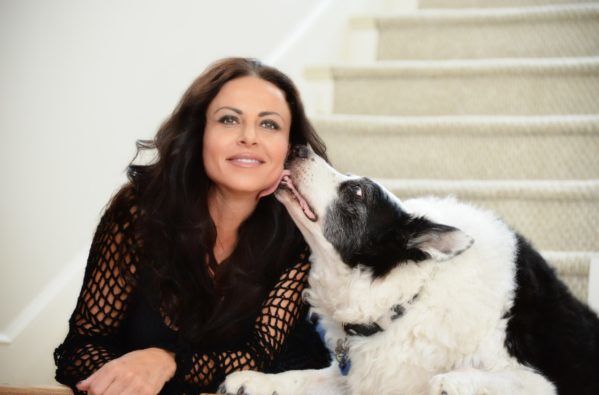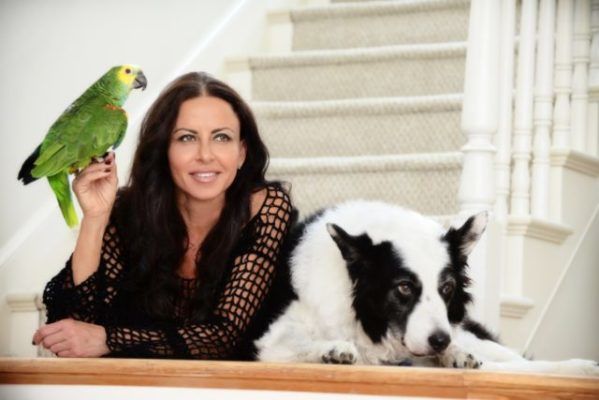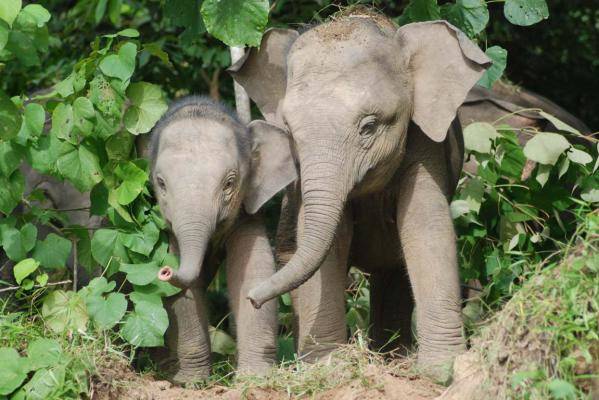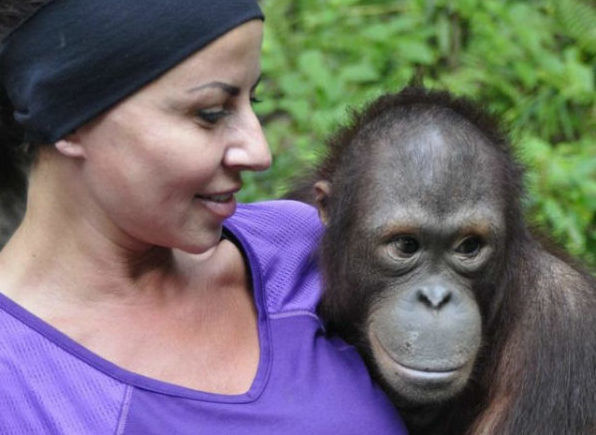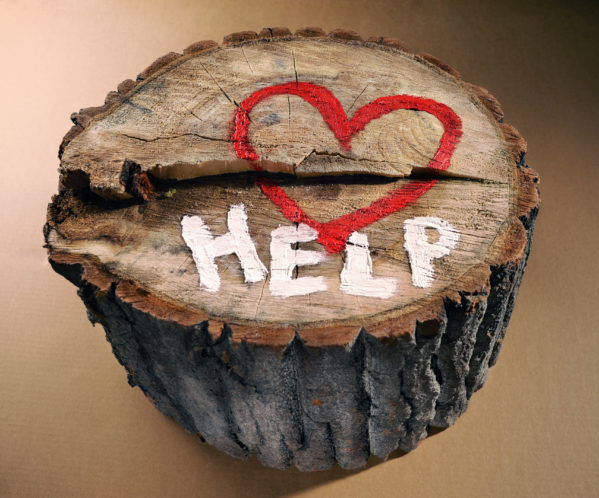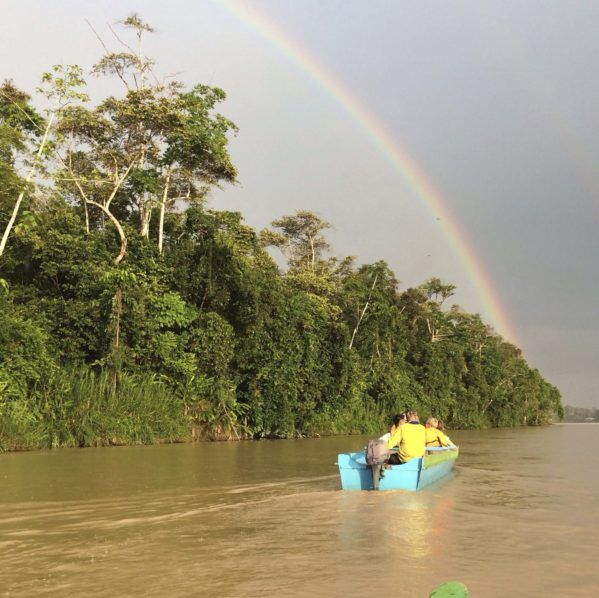Katerina Pirelli, Founder of the Borneo Wildlife Preservation
ML: You have a degree in Exotic Animal Behavioural Management and Training. How did your path lead to this passion for animals and what doors did you feel this degree would open for you?
KP: I always had animals growing up and had a fascination and love to be around them. As a teenager, I volunteered my time working at Sea World with penguins and also for equine veterinarians. After that I had many jobs in various fields – marketing, tourism, international consulting, etc – but was never quite satisfied.
In my mid-twenties, I decided to follow my passion and start a career working with animals. I then applied at Moorpark College in Los Angels, California. It’s the only school in the world offering this type of specialised curriculum and hands-on experience with over 150 different species of animals. After I graduated I was fortunate enough to get one of the best and most diverse jobs in the industry: I started in the movie and television industry working with some of the best trainers in the world, having over 30 years and second generation experience, with a very wide variety of animals. This opportunity introduced me to many interesting people and a diverse array of wildlife and exotic animals.
ML: As an environmental and animal advocate, with an established professional career working with Exotic and Domestic animals over the last 20 years, tell us about some of your “various capacities”.
KP: I had an internship working with marine mammals – dolphins, walrus and sea lions – and while attending school I cared for and trained a rescued California Sea Lion. One of my big passions has always been primates, so during a 2-year internship I worked with and studied a wide range of chimps and orangutangs. As a professional, my career lead me to caring for exotic animals just outside of Los Angeles. I choreographed different shows – for example, for film, television and wildlife education – and trained and assisted with behavioural modification of animals such as, lions, cheetah, tigers, monkeys and great apes, elephants, camels, horses, oryx, dogs, cats, parrots and birds of prey, rats, racoons, squirrels, to name a few!
Some of my most exciting films that I have worked on include the Ridley Scott movie Gladiator, starring Russell Crowe, where I was fortunate enough to work with an amazing crew as well as many trained and untrained animals. We brought in our tigers from California to work in Malta and we worked with many regional animals in Morocco, as well as crocodiles, giraffes, Cape vultures, flamingos and ostrich from the local Rabat Zoo. On this film we sourced many of our trainers and animals from Spain and France.
Hannibal, also by Ridley Scott, was another great film where I sourced and trained the wild “man eating” boar that were in the film. I really grew to love working with them. They were such a challenge.
The Patriot with Mel Gibson, was another fantastic film with amazing Great Danes. Scorpian King, starring The Rock, was just a really fun, well-cast movie with monkeys, an elephant, camels, birds, and various hoof stock.
Running Free was one of my first and favourite movies working in Namibia, Africa, with oryx, ostrich, baboons, cheetahs, lions, dogs, and a wide range of horses. This was one of the most fun yet most challenging films I’ve had the pleasure to work on. This film took about four months of prep work in the Namib Desert.
I’ve also been associated with various animal charity foundations based in Los Angeles, worked at the LA Zoo and owned a dog training business for over 10 years.
ML: You founded the Borneo Wildlife Preservation, a US based non-profit organisation based in Marina Del Rey, to protect the Borneo Pygmy Elephants from extinction. Can you share the organisation’s history and describe your first encounter with a Borneo Pygmy Elephant.
KP: I originally became interested in the Bornean Elephant about 17 years ago. I was absolutely intrigued with them being the smallest elephants in the world and with minimal numbers surviving only on the island of Borneo. With their dish face, large ears and long tails, they are incredibly cute in comparison to other elephants. They are much smaller than because of adaptation to living beneath the trees in the rainforests. Unfortunately, their size and deforestation leaves them vulnerable to poachers and human-elephant conflict. Over the years, their numbers have decreased rather than increased, hence the reason I started BWP, as I felt compelled to assist local NGOs of Borneo in their efforts to aid the species survival.
With the mass expansion of oil palm plantations, Bornean Elephants are at critical risk of becoming extinct. The elephants face difficult times as a result of fragmented forests, severely degraded natural landscape, lack of food, lack of migration routes, poaching and conflict with man and machinery.
The situation in Borneo is at a point now that in order for these animals to survive, positive human intervention must occur now. Our foundation also aims to help the survival of orangutans and proboscis monkeys as they all live and migrate within the same habitats of Sabah, Borneo. The Sabah Government has vowed to protect 30 percent of natural rainforest by the year 2020, but we feel more than that is needed. Last November, we signed an MOU with a Sabah-based NGO, Borneo Conservation Trust. We have an excellent relationship and our goals are mutual, and together we have created several projects to raise donations.
Land Purchase in critical migration routes is important because if the land is not purchased by NGOs with a goal to maintain it as a forest or a habitat, it will likely be purchased for oil palm estates.
We have tree-planting projects on various acres of land along the Kinabatangan River. Much of the forest has been destroyed in this are and it’s important to replant the rainforest for future generations of wildlife to live and thrive. The seedlings we will plant are about two feet and can take two to five years to reach a height of 15 feet. The sooner we plant the trees the sooner the secondary rainforests will appear.
The Borneo Elephant Sanctuary (BES) is the only place in Borneo for injured, displaced and orphaned elephants to go. Right now only 2 elephants are living there. It desperately needs expansion. We would like help expand and build a play yard for these elephants as they must remain in captivity until at least the age of 8, if not longer.
If the elephant was involved with human conflict, probably it will live the remainder of its life in captivity. We also have a 4-acre eco-farm in the hopes of development where we will plant fruiting trees and grasses favoured by the elephants. It costs €1000 per month to feed one elephant as they can eat up to 150 kg of food per day. The problem in the past, as now, is that once these elephants are rescued they have neither enough medical supplies nor enough food to feed them, hence funding is always an issue. With this eco-farm, food should not be an issue anymore as it will be enough to continuously feed the elephants being housed.
Five baby elephants are being housed at Sepilok, which is an orangutan rehabilitation facility. At this time there is nowhere else for these elephants to go, as expansion needs to occur at the BES to create more space for more elephants. Within the last two years, 16 elephants were rescued and because of severe injuries or malnutrition only these five survived. A portion of our donations goes towards food purchase to feed these elephants.
We also have children in France and Canada advocating for animals and it is our intention to bring those children to Borneo to speak in schools about the medicinal plants and animals of the Borneo Rainforests. We would like them to share ideas of sustainability and the importance of protecting the animals and rainforests of Borneo for themselves and future generations.
It should be noted that we are also creating jobs for locals as we hire villagers, as well as accepting outside volunteers.
ML: Your mission is also to provide local information on sustainable efforts to protect the rain forests. Why is this essential and how can we achieve this?
KP: I feel it’s very important that people act together. We must think globally and act locally. Conservation is a global effort right now and the more people that we can get involved to advocate, the better the rainforests and endangered species will be.
ML: I believe you are also vegan. How does veganism connect to your cause? Do most vegan’s look at the ingredients in their food?
KP: I am vegan and eat a plant-based diet, meaning minimal processed food. I feel that eating a clean plant-based diet improves longevity and the quality of life. I actually stopped eating red meat 25 years ago. I do believe most vegans look at ingredients in their food, I certainly do. I’m not only looking for dairy or meat products but chemicals, additives, food dyes, oils and a variety of other harmful additives. I try to keep it simple and usually just purchase and eat whole foods. Juicing is also a HUGE part of my diet as well. It’s the fastest way to get the good nutrients into your body.
I don’t think that anyone can call themselves an environmentalist if they are eating meat and contributing to widespread factory farming, global warming and rainforest destruction for animal agriculture. I don’t want to contribute to the unethical and horrific treatment in factory farms. Not to mention most meat products are completely unhealthy with high levels of hormones and antibiotics in them. Free-living animals are becoming less and less and the wild rainforests are rapidly disappearing due to Animal Agriculture in the Amazon and Oil Palm Plantations in Borneo.
ML: You say that Borneo Foundation is also based in the South of France and that you speak in Monaco. How do you create awareness in this part of the world?
KP: We are trying to create a buzz and awareness in this part of the world to involve as many influential and wealthy people as possible to help provide aid to Borneo. We feel this is a great area to create more awareness because we can easily connect with local individuals as it’s an environmentally-friendly community.
ML: You will be holding a Gala in Monte Carlo in May. What is your objective for the event?
KP: We are hosting a fund-raising Gala dinner this summer to raise awareness about the plight of Bornean Elephants and create a “Borneo Buzz”, both for these mammals and also to get more people involved with this amazingly beautiful island and its people. We intend to have a celebrity appearance at the event but details are still in the works. We will be promoting our eco-tour at this event with a raffle and give-aways to kick-off our new luxury tour.
The Borneo Adventure Tour is an jungle trek river cruise in search of diurnal and nocturnal animals along the Kinabatangan River. We also introduce people on this eco-tour to Borneo’s history and the local school children.
Also, toward the end of 2018, we will be launching a Borneo Luxury Tour geared towards the luxury traveller with top accommodation and scuba diving add-ons. Starting in Kota Kinabalu, in the capital city of Sabah, tour stops will combine tropical island discovery with an extraordinarily diverse selection of mainland wildlife and beauty.
ML: With different cultures, economies and legislation, how do individual countries (Malta, Australia, Canada, Namibia, Morocco, France, Italy and Mexico) treat your efforts to protect Borneo Pygmy Elephants and rainforests? How do the countries vary in terms of their animal import/export policies?
KP: Illegal animal trade is a big problem for Borneo, which directly involves Africa, as Borneo is a transportation hub of some protected species coming from Africa en route to Vietnam and China. These two countries are where most of the illegally poached and illegal live captures from the rainforests of Borneo end up. These elephants as well as other endangered species are protected by CITES (the Convention on International Trade in Endangered Species of Wild Fauna and Flora) and laws prohibit the exportation to zoos at this time. There has been some talk about exporting elephants to zoos that cannot be re-released into the “wild”. This would take some time to get around animal export laws.
ML: What can an average citizen do to support your Foundation and to make change? Do we all need to become vegan?
KP: Ha Ha… that would be wonderful, but not realistic. I think if people can reduce their meat consumption and take small steps in that direction it would help. Also not purchasing anything with palm oil unless it is RSPO (Roundtable of Sustainable Palm Oil) certified. Most foods containing palm oil are unhealthy anyway such as, cheap candy, packaged soups, sauces etc.
Talking to friends and family about the need for conservation in Borneo and rainforests worldwide is a great thing that everyone can do. I also feel its time for everyone capable to fight, speak and stand up for the survival of elephants worldwide.
ML: If Monaco Life readers take away one thing from the awareness you are trying to create, what should it be?
KP: To please donate to BWP but also to be conscious and responsible for your daily purchases and actions. Reduce, reuse and recycle your products and support efforts to stop illegal animal and animal parts trade worldwide especially elephant tusks, skins and feet. The time to help these magnificent, ancient species is now, their time is running very short and we are likely to lose them to extinction in our lifetime.
For more, see the Borneo Wildlife Preservation website. Article first published February 21, 2018.
READ ALSO
